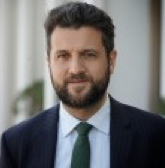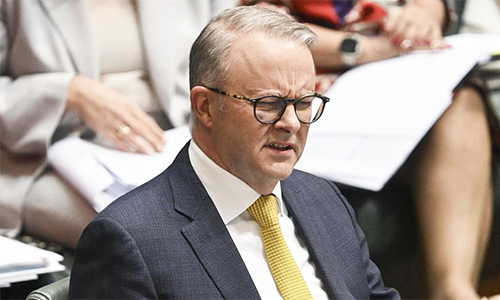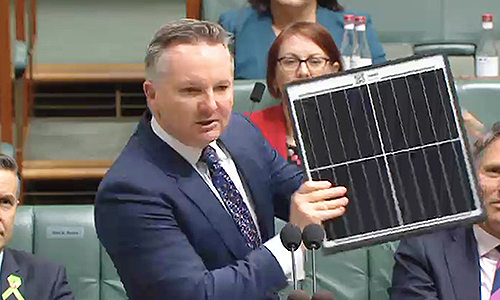
AUSTRALIA’s military build-up has placed the nation on a trajectory towards nuclear weapons according to respected security analyst Dr Euan Graham.
The Singapore-based Asia-Pacific defence expert said this month’s announcement by Prime Minister Scott Morrison had “nudged Canberra into a more serious exploration of an independent nuclear capacity”.
“That possibility now moves further out of the shadows,” Dr Graham said.
MASSIVE
In his role as Senior Fellow for Asia-Pacific Security at the International Institute of Strategic Studies (IISS), Dr Graham’s comments followed the Prime Minister’s announcement of a massive build-up of Australia’s defence – and offensive – capabilities.
Current national spending is to increase from US$35b a year to US61.2b by 2030 – eclipsing Britain, Germany as well as France and matching Russia’s current defence spend of US$61.6b.
Mr Morrison’s re-militarisation plan announced on July 1 received bi-partisan support in Canberra.

“While the strategic update reaffirms Australia’s reliance on the United States to provide extended nuclear deterrence, the logic of increased self-reliance in deterrence is also likely to nudge Canberra into more serious exploration of an independent nuclear capability,” Dr Graham said.
SHADOWS
“Such a decision would only follow a wholesale deterioration in Australia’s strategic environment, but given the long lead times and the end of strategic warning time, that possibility moves further out of the shadows.
“Another indicator of seriousness in the defence update and force posture plan is the attention given to sensors and logistical depth, including the supply of specialised munitions and fuel.”
Associate Professor of Physics at UNSW Heiko Timmers agrees the government’s position on nuclear may be shifting.
“Recently, Energy Minister Angus Taylor said the Morrison government was open to reversing the country’s nuclear energy ban, but only if there was a ‘clear business case’ to do so,” Prof Timmers wrote in a piece in The Conversation.
PLUTONIUM
“A well-developed nuclear power industry would eventually give Australia almost all the necessary technologies, personnel and materials to make and maintain a nuclear weapon. This includes, in particular, the ability to enrich uranium and breed plutonium.
“Of course, Australia has large uranium deposits and a well-established uranium mining and export industry. And there appears to be increasing public support for nuclear power.
“A recent survey found that 44 per cent of Australians support nuclear power plants, up four points since the question was last asked in 2015.”
The Essential survey also suggested more Australians now supported nuclear power than were against it.
SUPPORT
Other polls indicate support for atomic power may be higher still.
In October last year, 61 per cent of respondents to an SBS Viceland poll were in favour of Australia lifting its ban on nuclear energy, and an ABC poll in March this year found 57 per cent were in favour of Australia considering nuclear power as an energy source.
International defence spending comparisons have been sourced from the International Institute of Strategic Studies (2019 Defence Budgets). To allow comparisons, the announced Australian defence spend increases have been converted to US dollars using the 10 year average exchange rate of 0.83.PC












Nuclear weapons are a blunt sword.. a relic of the cold war.. The future is biological weapons..
The use of which destroys all life but leaves all infrastructure intact..
This is the war of the future..
We need atomic power stations I think the need to go to nuclear weapons needs more time!